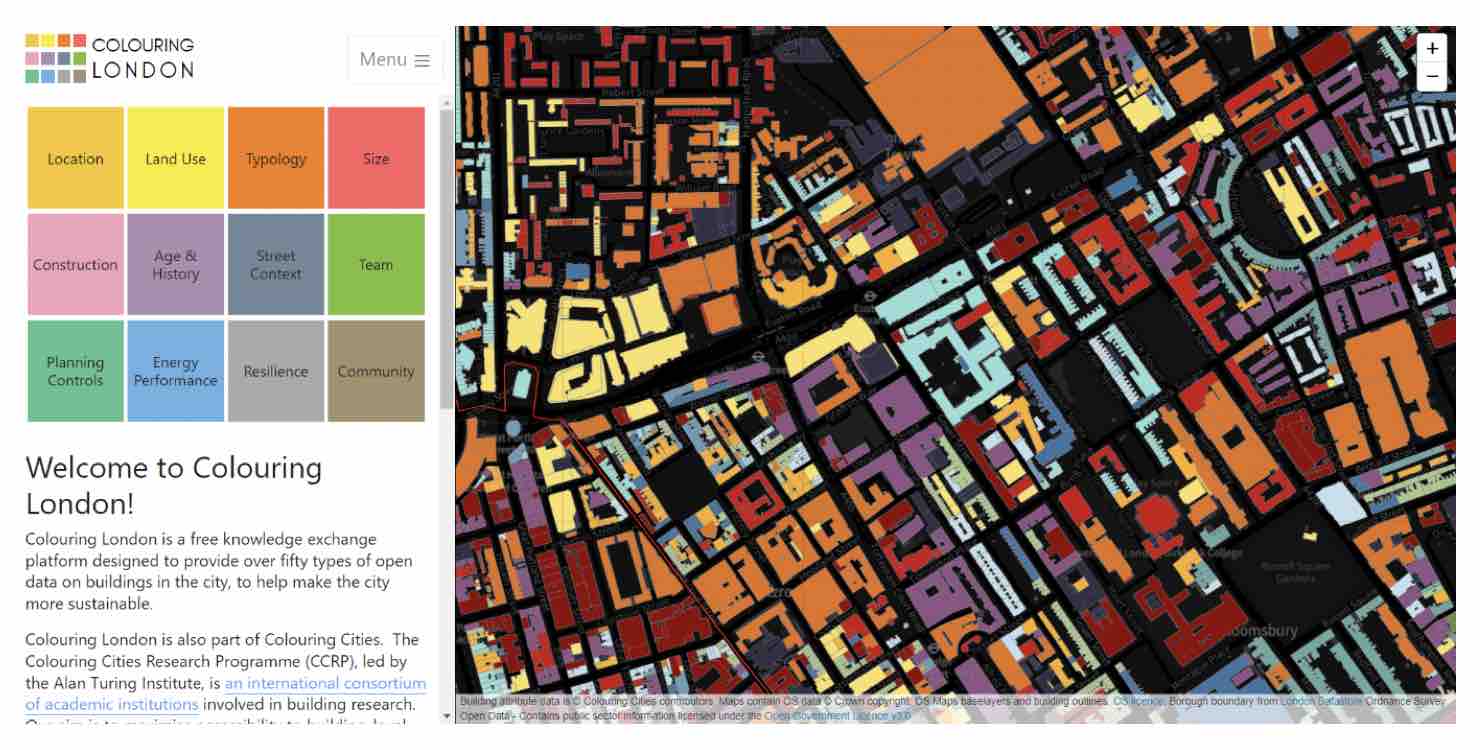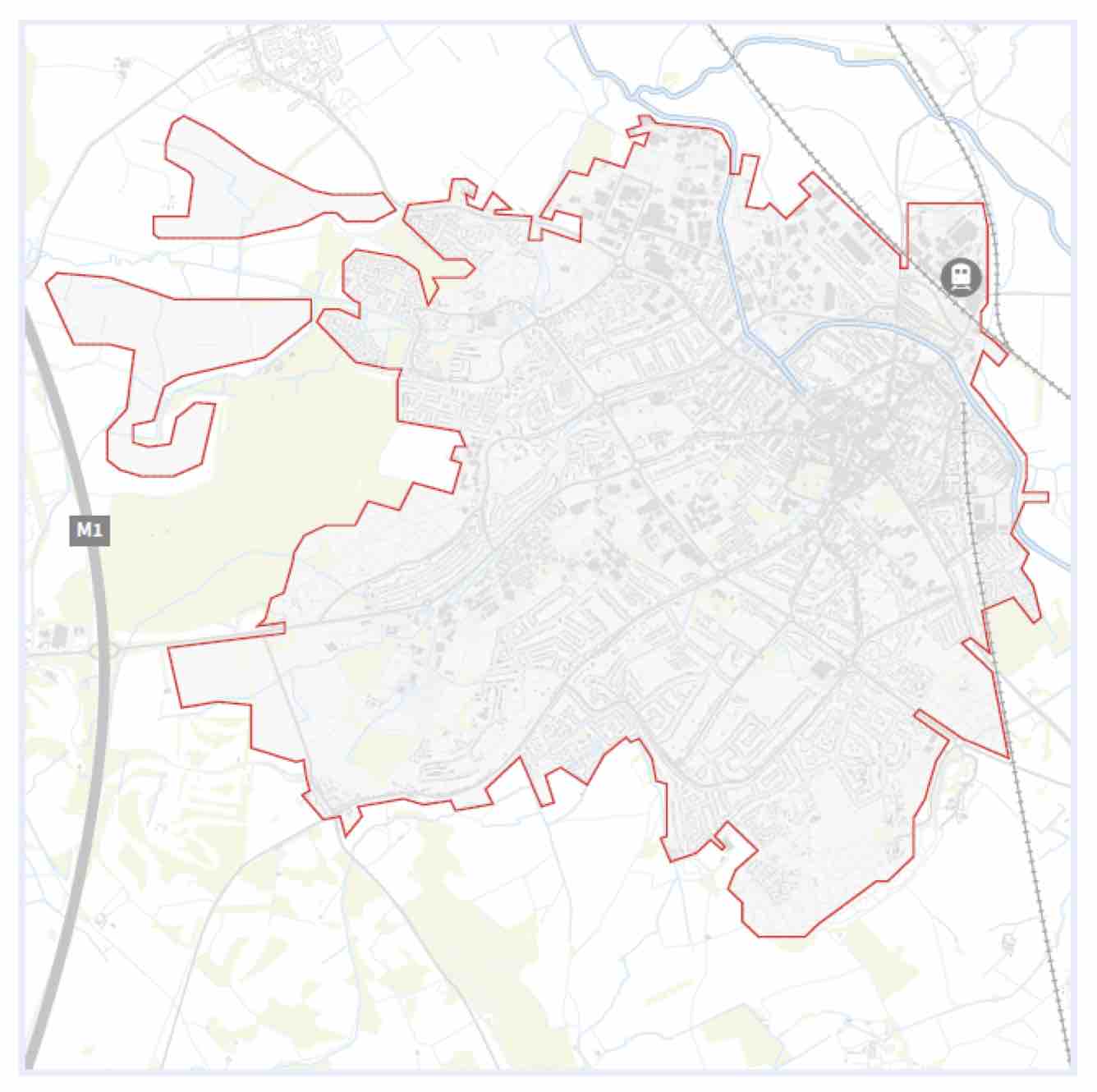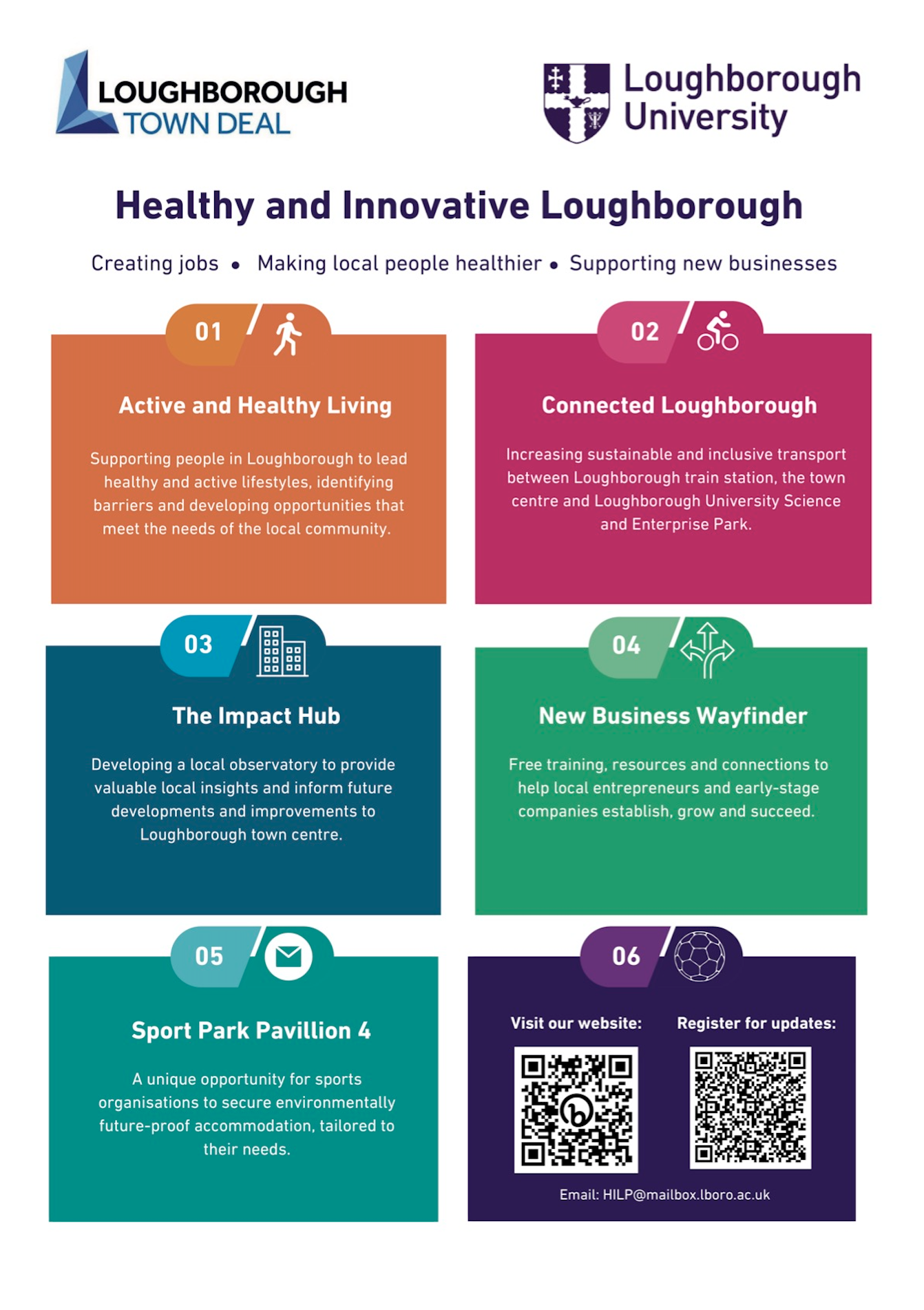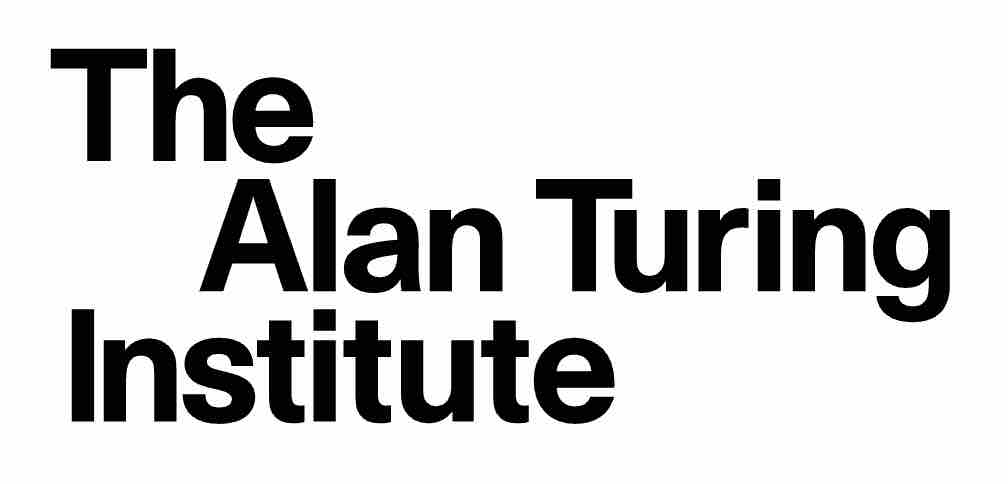Data visualisation for digital planning is the driver in this collaborative project with The Alan Turing Institute’s Colouring Cities Research Programme (CCRP). The Impact Hub has assembled an interdisciplinary team from urban planning, architecture, spatial data science, urban design, and graphic design to create a sub-regional town observatory based on the Colouring London platform created by The Alan Turing Institute. See Figure 1.

Figure 1: Colouring London dashboard. Source: https://colouringlondon.org/
“Urban observatories are well-positioned to address the frequently expressed need for reliable, high resolution urban datasets specific to the cities and immediate city-regions in which they operate.”
The market town of Loughborough in the Charnwood Borough of Leicestershire is a test bed for a town-level observatory. Located roughly in the centre of England, the Loughborough town observatory will generate evidence and data to help policymakers and community leaders make informed decisions about the future of the town. Working with local communities and drawing upon national and international expertise, the observatory will collect and make open data about the town easily accessible, helping people to understand and make decisions based on visual information. The boundary of the Loughborough study area is shown in Figure 2.

Figure 2: Town Deal boundary. Source: Loughborough Town Deal Board, 2021.
Compared to cities, towns face unique challenges relevant to smaller communities too often overlooked in larger urban settings. More nuanced and localised urban planning and governance is needed. Evidence shows that towns face significant challenges associated with an ageing population; fewer people with experience of higher education; limited economic opportunities at the regional level; and limited foreign investment. Poor transport and digital connectivity may also compound the situation. [1]
Establishing the Loughborough Town Observatory follows a ‘co-design’ approach that will enable end-users and researchers to collectively think, plan, propose and intervene on matters that affect their lives. This approach will foreground knowledge exchange; creative, flexible, and adaptive methods; collaborative data collection and visualisation; and empowering stakeholders and communities; through an ethical and respectful approach.
 Figure 3: Poster for the Healthy and Innovative Loughborough project.
Figure 3: Poster for the Healthy and Innovative Loughborough project.
Funded by a £2.46 million grant from Loughborough Town Deal, the Healthy and Innovative Loughborough initiative will use the University’s reputation and expertise in sports, research, entrepreneurship, and knowledge creation. See Figure 3. It is part of the Loughborough Town Deal project, a £16.9 million investment from the Government’s Towns Fund and is backing 11 projects which are boosting skills, helping regenerate the town and supporting the visitor economy. The projects are worth over £40 million of total investment into Loughborough. Working alongside residents, community leaders, businesses, Charnwood Borough Council, Active Healthy Living and Connected Loughborough, The Impact Hub will evaluate the effects of interventions, assess the wellbeing and strength of the town, and look into plans to reinvigorate the town centre and make improvements for the future.
 Visit the Healthy and Innovative Loughborough website
Visit the Healthy and Innovative Loughborough website
 Register for updates
Register for updates
Featured image: Bedford Square Gateway Project. Source: Charnwood Borough Council (2022).
1. Ministry of Housing, Communities & Local Government. (2019) Towns Fund Prospectus. Available at: https://www.gov.uk/government/publications/towns-fund-prospectus.
